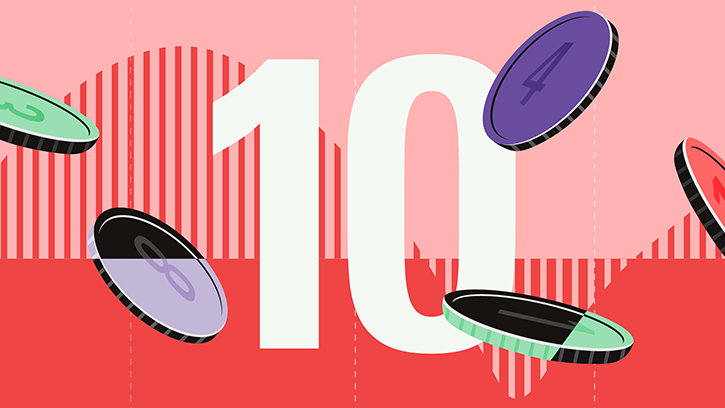
Buoyed by the exceptional performance of large-cap US stocks and tech companies, two Baillie Gifford closed-end funds are the best-performing Morningstar rated investment trusts year to date.
Elsewhere, smaller company offerings performed well, with healthcare and biotech stocks getting a reprieve after a difficult time during the US election campaign back in late 2016.
Latin America-focused trusts were by far the worst performers, with double-digit losses. Emerging market and high-yield offerings also struggled.
Below, we reveal the five best and the five worst performing closed-end funds in the first half of 2018.
5 Best-Performing Trusts
Unsurprisingly, with tech and growth stocks continuing their rally, Scottish Mortgage (SMT) topped of the charts. The £7.8 billion James Anderson-managed offering returned investors a huge 19% in the first half of 2018.
Despite that, some of the Morningstar Gold Rated trust’s biggest holdings – mainly China-focused Alibaba, Tencent and Baidu – either only marginally gained, or lost money in the six months. But Amazon (AMZN), its largest stock at 10% of the portfolio, grew by 50%; Netflix (NFLX) doubled; and Kering (KER) and Ferrari (RACE) both put on a third.
Edinburgh Worldwide’s (EWI) came in a close second, returning 17.7%. The £500 million trust’s performance was boosted by the performance of UK holding Ocado (OCDO), which signed a blockbuster deal with US firm Kroger (KR). Shares have doubled in the past two months.
A pair of smaller companies trusts came next, though a long way behind the leading two. The £725 million Morningstar Gold Rated BlackRock Smaller Companies (BRSC), managed by Mike Prentis, returned 9.2%. Headlined by veterinary services supplier Dechra Pharmaceuticals (DPH) and recruitment firm Robert Walters (RWA), the fund was buoyed by the performance of small UK firms.
Montanaro European Smaller Companies (MTE), a tiny, £150 million, Bronze Rated offering, came in just behind BRSC up 9% in the first half. The trust, run by George Cooke, has a fifth of its assets invested in Swedish companies.
Rounding off the top five is Worldwide Healthcare (WWH), which gained 7.3% as drugmakers’ share prices got some relief from a surprisingly unremarkable speech on drug pricing from US President Donald Trump.
5 Worst-Performing Trusts
As with the list of worst-performing funds, it was emerging market-focused offerings that dominated at the bottom. While the Gold Rated Murray International trust (MYI) has a global mandate, it has a tilt towards emerging countries.
Bruce Stout’s £1.4 billion fund has a quarter of its portfolio in Asia and 15% in Latin America and other emerging markets, meaning performance – a loss of 8.4% in the first six months of the year – was affected by trade war talk.
Similar comments apply to Invesco Asia (IAT), losing 5.8%, and JPMorgan Global Emerging Markets Income (JEMI), down 4.3%. The former has just over a quarter of its portfolio exposed to China, with a further 15% in Hong Kong. The latter is less exposed to China, but has 15% in Brazil and Mexico and 4% in the poorly performing market of India.
The JP Morgan Indian Trust (JII) was the second worst-performing closed-end fund in the half. It avoided last place by 2 basis points, but has struggled as the Indian market continues to underperform due to recent US dollar strength.
Interestingly, despite Russia being one of the better performing stock markets in the year-to-date, BlackRock Emerging Europe (BEEP) also performed poorly, losing 4.63%.


































